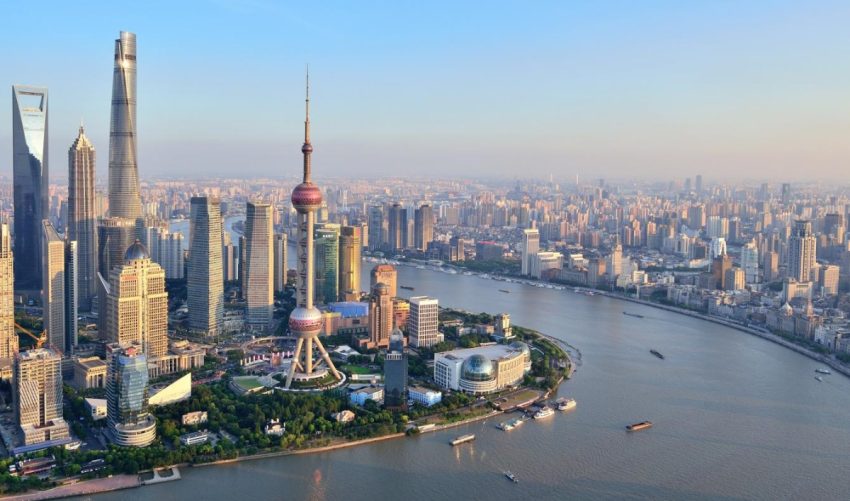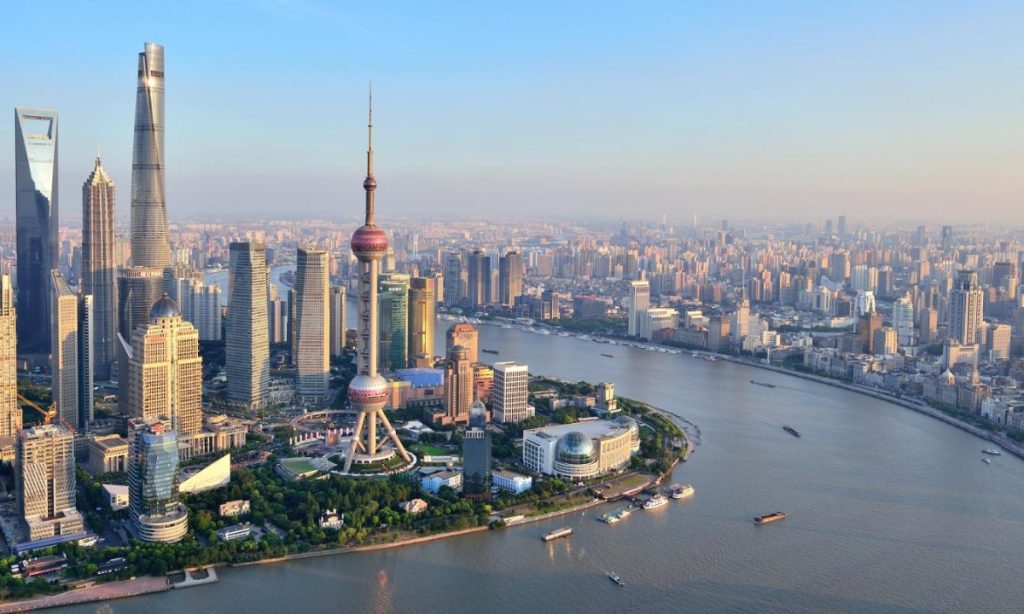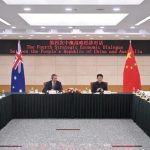
China's economy off to good start in Q1, up by 5.3%, defying 'Peak China' rhetoric

China's GDP growth rate beat market expectations to reach 5.3 percent year-on-year in the first quarter, kicking off a good start to the year and laying a strong foundation for achieving the annual development targets.
The strong momentum of the world's second-largest economy has debunked the "Peak China" theory and other fallacies, Chinese analysts said. They said the US-led ideological prejudice against China and a zero-sum mentality will neither disrupt China's economic development nor shake the confidence in China's economy.
China will deepen reforms and open its door wider to the world even when some countries in the West are trying to decouple or de-risk from China, analysts said, noting the country's high-quality development will inject new impetus into global economic growth and provide more opportunities for other countries.
A good start
In the first three months of the year, China's total GDP reached 29.63 trillion yuan ($4.09 trillion), up 5.3 percent year-on-year, or up by 1.6 percentage points over the fourth quarter of 2023, according to data released by the National Bureau of Statistics (NBS) on Tuesday.
"The national economy continued to rebound, kicking off a good start," Sheng Laiyun, deputy director of the NBS, said at a press conference on Tuesday. Over the period, policies continued to take effect, production and demands maintained stable and witnessed an increase, employment and prices were generally stable, market confidence continued to strengthen, and high-quality development made new progress, the official said.
"China's 5.3-percent growth in the first quarter is much higher than what the US, EU or Japan will achieve in 2024. With stronger fiscal and monetary stimulus, the figure could be higher," Gary Hufbauer, a non-resident senior fellow at US think tank Peterson Institute for International Economics, told the Global Times.
As one of the highlights of the country's economic operation in the first three months, the total value added of industrial enterprises above the designated size grew by 6.1 percent year-on-year, NBS data showed.
The value added of high-tech manufacturing increased by 7.5 percent, 2.6 percentage points faster than that of the fourth quarter of 2023, which underlies that the Chinese central government is accelerating the development of new quality productive forces to build new growth drivers, Wan Zhe, an economist and professor at the Belt and Road School of Beijing Normal University, told the Global Times on Tuesday.
The data also offered a strong rebuttal to Washington that hypes up the "overcapacity" rhetoric to suppress China's green industries, Cong Yi, a professor at the Tianjin University of Finance and Economics, told the Global Times on Tuesday.
China's production capacity is good, and many of its high-end industries have gained international competitiveness thanks to its advantages in such aspects as industrial system and abundant human resources as well as huge investment in innovations, he said.
In addition to sound industrial growth, the country's investment in fixed assets reached 10 trillion yuan between January and March, up 4.5 percent year-on-year, and 1.5 percentage points faster than that recorded in 2023. The total retail sales of consumer goods reached 12.03 trillion yuan, up 4.7 percent year-on-year, according to the NBS.
Driven by the issuance of additional government bonds worth 1 trillion yuan starting from the end of last year, local governments have stepped up efforts in boosting infrastructure investment, which contributed to the economic growth in the first quarter of the year, Wan said. Meanwhile, the country's exports also rebounded amid growing demand.
Boon for world
However, choosing to neglect growing positive factors in the Chinese economy, some organizations and media outlets in the West continue to enthusiastically cast cloud over China's development. For instance, US ratings agency Fitch last week moved to downgrade the country's sovereign credit outlook to negative, citing local government debt and slowing growth.
"Fitch's move reflects that it doesn't understand China's economy. It's inappropriate to measure the economy of the world's largest developing country simply with Western standards," Cong said, stressing that China's financial and debt risks are controllable.
On the one hand, China's economic scale is huge. On the other hand, different from Western governments that run mainly on tax revenue, Chinese central and local governments have a large amount of State-owned assets and resources, he continued.
China's enormous growth potential will be unleashed along with economic structural adjustments, and its high-quality development will inject strong impetus into global economic growth and provide more opportunities for the development of all countries, Cong said. The country has targeted its economic growth at around 5 percent for 2024, a goal that experts believe is well within reach considering the country's sound economic fundamentals and policy measures.
"We are quite optimistic about the potential in the Chinese market. There is a large market with various new products and new technologies," Rainer Kern, Vice General Manager and Chief Financial Officer of Kärcher China, told the Global Times.
On the back of sound momentum of rebound in China, some foreign financial institutions including Goldman Sachs Group Inc and Morgan Stanley have recently also raised their forecasts for China's economic growth in 2024 to 5 percent or 4.8 percent.
Short-term challenges persist
Looking forward, Tian Yun, a Beijing-based economist, told the Global Times on Tuesday that considering the high base of last year's second quarter, more supportive measures are needed to consolidate the recovery momentum.
"Several macro-economic figures recorded in March are lower than those in the first two months of the year - partially due to a high base the same month last year - which reflects that domestic recovery in some areas remains weak," Tian said, calling for the issuance and use of ultra-long special government bonds in the second quarter to boost fiscal support.
Foreign trade also needs policy support. Continuous foreign trade rebound will alleviate pressure on the economy in the second half of the year, when Western naysayers' so-called "Peak China" theory will turn out to be totally untenable, Tian said.
In addition, the authorities should roll out detailed policies for the action plan to promote the large-scale renewable of equipment and the trading-in of consumer goods in a bid to expand domestic demand, Wan said. She said loan rates should be further reduced to lower financing costs.
Sheng, the NBS official, expressed full confidence to the sustained upward growth and high-quality development of China's economy.
As China remains in the stage of economic structure adjustments for transformation and upgrade, some companies will have to undergo temporary pains. Due to the adjustment of traditional industries and the nurture of new growth momentum, it is normal to see some economic growth fluctuations. But the quality of China's growth continues to improve, which is the fundamentals supporting the country's upward economic recovery, Sheng said.
When we talk about economic progress, it not only means GDP growth rate but also quality improvement. A comprehensive look at China's economy will help strengthen confidence in the economy, the official said.



